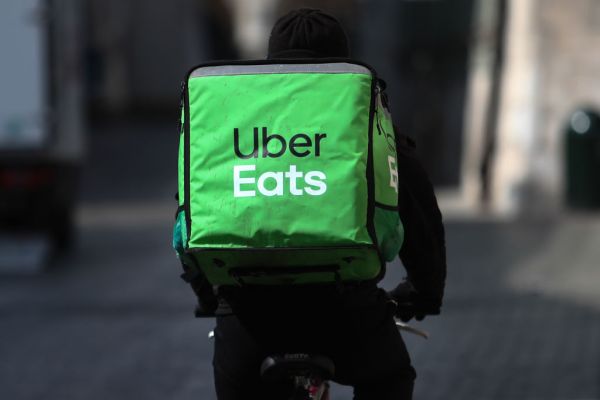
It’s tempting to assume that the ride-hailing model is moving in the direction of dying companies, especially in the wake of Lyft’s highly publicized layoffs and employee turnover. But Uber’s earnings results for the first quarter allay some of those concerns.
Not only did Uber beat analysts’ expectations across the board, it also showed that its financial footing is solidifying: its multi-part business model is doing well as its food delivery business, which supported its ride-hailing efforts during the pandemic, growth stick back to the company’s original venture.
The Exchange examines startups, markets and money.
Read it every morning on TechCrunch+ or get The Exchange’s newsletter every Saturday.
In the first quarter, Uber’s revenue of $8.82 billion beat analyst expectations by about $100 million, which is significant. The company’s GAAP loss was also smaller than expected ($0.08 in loss per share compared to the average analyst estimate of $0.09 per share), while adjusted earnings were better than counting the street ($761 million in adjusted EBITDA compared to the $678.6 million estimate). Shares of the company spiked after the announcement, rising 8.9% to $35.68.
 Against the backdrop of Lyft’s struggles and lukewarm growth at major tech companies, we’re digging into Uber’s results this morning, looking at the good, the not-so-good, and the curious. Our goal is to understand the company’s recent performance, and we conclude with a comment on the trade-off between Uber’s profitability and growth as it exists today, and what that can tell us about investor sentiment today.
Against the backdrop of Lyft’s struggles and lukewarm growth at major tech companies, we’re digging into Uber’s results this morning, looking at the good, the not-so-good, and the curious. Our goal is to understand the company’s recent performance, and we conclude with a comment on the trade-off between Uber’s profitability and growth as it exists today, and what that can tell us about investor sentiment today.
The latter is essential for startups looking to raise more capital, so read carefully. To work!
Highs and lows
Uber saw its first-quarter gross bookings increase 19% to $31.4 billion from a year earlier (bookings were up 22% after adjusting for currency fluctuations, but we’ll keep it flat for the rest of this post). The company’s revenue rose 29%, supported by a change in how Uber handles its UK-based accounts.
Uber’s gross bookings are derived from its two major businesses, ride-hailing and food delivery (more info here):